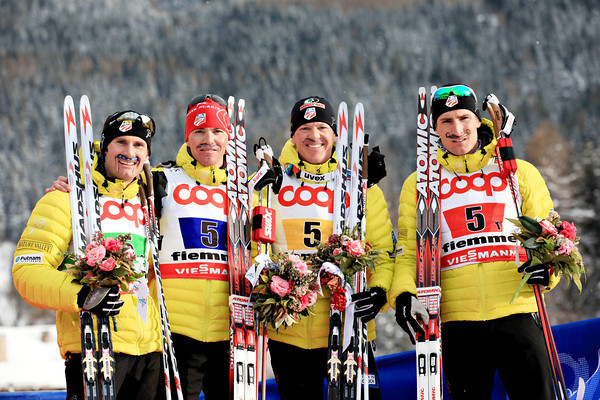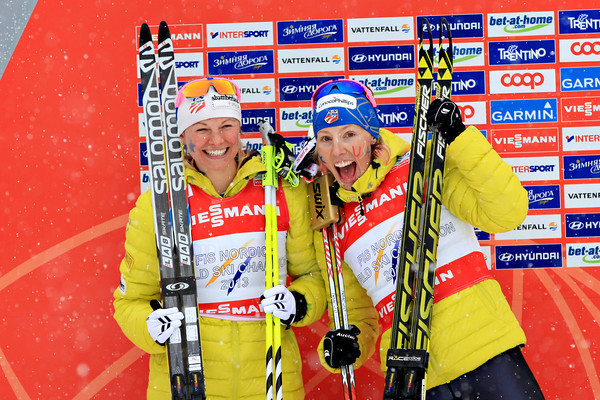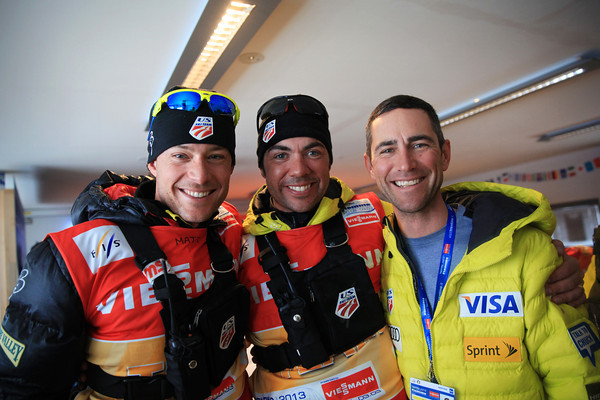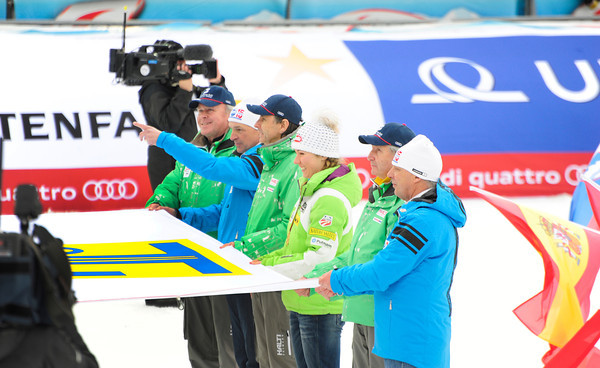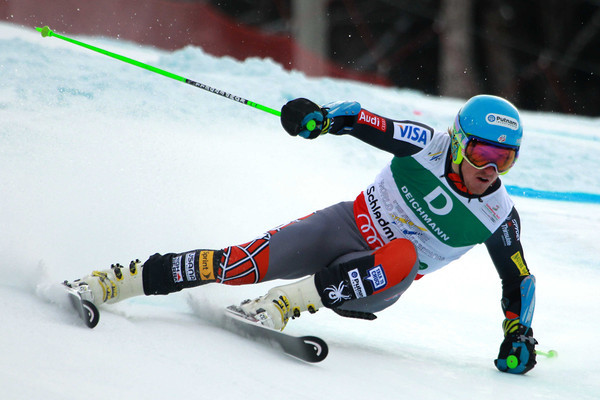Finally -- some straight talk about why the International Olympic Committee moved to kick wrestling out of the Summer Games in 2020, and what to do about it. All you have to do, it seems, is tune in to radio station KCJJ, "The Mighty 1630," in Coralville, Iowa.
The Mighty 1630 would be all of 10,000 watts beaming out to Coralville, Iowa City and the rest of eastern Iowa, and earlier this week you could have heard Terry Brands, the associate head coach of the University of Iowa wrestling team and a 2000 Sydney Games bronze medalist in the sport, tell you in plain terms what happened and what needs to be done now.
FILA, the sport’s international governing body, was asleep at the switch, he said.
The IOC had been sending it signals for years that it "perceives us as different from how we perceive ourselves" but that message "went unheeded," with the result that the IOC executive board moved two weeks ago to remove wrestling from the list of 25 "core" sports on the 2020 Summer Games program.
What needs to happen going forward, he said, in the wake of leadership change at the top of FILA -- president Raphael Martinetti, a Swiss businessman, out in favor of acting president Nenad Lalovic of Serbia -- is elemental.
It's called lobbying. It's relationship-building. It's what FILA should have been doing all along.
All with the aim of getting wrestling included on the list of sports the IOC general assembly can review in September in Buenos Aires. The IOC board will draw up the list at its next meeting, in May in St. Petersburg, Russia. It's unclear how many sports the board will put forward for September review; the current odds favor three, with wrestling competing with the likes of squash, karate, sport climbing and a combined bid from baseball and softball.
There's room for just one more sport on the 2020 program -- if, and that's a big if, the IOC decides to include one more sport. The number, including golf and rugby, now stands at 27. By rule, the maximum number for any Summer Games is 28.
"If I'm a FILA rep," Brands said, "then I'm going to go out and I'm going to have dinner with people and I'm going to listen to them and I'm going to act like I care. Because I do care.
"Because that's what my job is. It's not about acting any more. I mean, are we with FILA because we want to have a status symbol or a resume booster? Or are we with FILA because we actually give a crap about wrestling?"
Truly, this is the fundamental question.
With some key exceptions, much of the outcry in the United States over the IOC’s move to exclude wrestling from the program core has been – as the saying goes – preaching to the choir.
It has been wrestling proponents talking to each other, most acting like the guy on the football team who didn’t see the crackback block coming.
For those feeling blindsided, Terry Brands has crystalized your question.
The course of action is also super-evident, at least at the IOC level – which means that, if the answer to his question is in the affirmative, everything said and done ought to be directed toward one goal:
It’s all about winning votes.
Understand, though, that the IOC plays by its rules. That’s the way it is.
That does not – repeat, not – mean the IOC is corrupt or venal. It means there’s a process, and it’s helpful to understand both context and process.
To begin:
Most talk since the IOC action has focused on how wrestling is a sport that is practiced the world over, with proponents noting there are 177 member nations of FILA.
But the numbers in the report that formed the basis of the IOC action also tell a different story.
The London 2012 Games welcomed 205 national Olympic committees. The wrestling competition included 71, or only 34.6 percent. Does that seem, to use the IOC’s phraseology, “universal”?
There are 12 African IOC members. In London, there was one African wrestling medalist. What is the African interest come September in seeing wrestling in the 2020 Games?
There are 10 IOC members from South or Latin American nations; their wrestlers won two medals last summer. Same question.
Of the 71 nations competing in London, wrestlers from 29 won medals.
By far the most medals went to European nations – 12 men and four women.
There are currently 101 members of the International Olympic Committee; the IOC is traditionally Eurocentric; 43 members are European.
Right now one of the moves within the broader Olympic movement is to establish or grow continental Games; the first European Games are scheduled for 2015. Yet Around the Rings, an Olympic newsletter, reported last week that wrestling officials had inexplicably not returned multiple calls to discuss being included in those 2015 Games.
The head of the European Olympic Committees? Patrick Hickey of Ireland. He also sits on the IOC executive board. He was quoted as saying he found the situation “exasperating.”
It’s little wonder that Jim Scherr, the former USOC chief executive -- and former executive director of USA Wrestling -- acknowledged in a conference call Thursday with reporters the sport now faces a "major challenge" in regaining its place for 2020 and beyond.
At the same time, he said, "It is a tremendous opportunity to make a real and lasting change for the future of the sport."
Wrestling, he said, needs to simplify rules, enhance the sport's presentation and create a better media model and sponsorship platform. It also, he said, needs to be a better member of the so-called Olympic family, which goes back to the person-to-person thing that Brands identified, as well as a broader understanding of what works in the IOC and what doesn't.
Here, though, is where things can get tricky. It takes relationships. It takes experience.
Candidly, it's not certain whether a hurry-up effort -- being pieced together on the fly with the aim of getting a job done by September after a February wake-up call -- is going to be enough.
It’s also not clear how some of the published responses in U.S. newspapers are going to play come September. Memories in the IOC can be vivid.
The Washington Post published an op-ed by Donald Rumsfeld, who served as U.S. secretary of defense for President George W. Bush, urging the IOC to reconsider, Rumsfeld saying he learned many life lessons as a high school and college wrestler.
In the Eurocentric IOC, reference to President Bush almost inevitably leads to mention of the U.S.-wars in Iraq and Afghanistan. Who prosecuted those wars as secretary of defense? Rumsfeld, of course, who began the piece by attacking the IOC, saying it had in recent years “drawn fire for its lack of transparency,” later saying wrestling called to mind traditional values “rather than the arts festival and Kumbaya session that some may prefer the modern Games to be.”
If the former secretary was trying to win votes – what, exactly, was his strategy?
The Los Angeles Times published an op-ed praising the potential of relationship-building after American wrestlers were among those taking part recently in an event in Iran called the World Cup.
The article described Americans walking the streets of Tehran “not as people from the ‘Great Satan’ but as comrades in the union of athletes.” Awesome, right?
Wrestling is very big in Iran. Last summer in London, Iranian wrestlers won six medals; that was tied for third-best at the 2012 Games, along with Japan and Georgia. Azerbaijan won seven. Russia topped the medals table with 11.
Asked at the end of Thursday's call if there might now be plans for a USA vs. Iran match in the works like last year's pre-London Games USA vs. Russia freestyle headliner in Times Square, the current executive director of USA Wrestling, Rich Bender, cautioned that any such notion was "premature" but allowed, "There are some large-scale plans and ideas that can showcase our sport."
Certainly, sport can sometimes open doors diplomacy can't.
But, again, it’s votes, votes, votes. There aren't any Iranian members of the IOC.
Amid any high-fives over the Iranians' seemingly gracious welcome to the Americans, did anyone bother to wonder what would happen if an Iranian wrestler was at the Olympics and, say, drew an Israeli. What then?
The Iranians’ ongoing refusal to engage Israeli athletes on the field of play, citing all manner of excuses, has been a contentious point of intolerance for years now. Are the Iranians suddenly good partners for a campaign of purported fraternity and goodwill?
Just imagine a match like last year’s, but this time with Iranian wrestlers, and again in New York – home to the second-largest Jewish population in the world.
As for Japan -- there is only one Japanese member of the IOC, Tsunekazu Takeda, and he became a member only last year. Moreover, he is the president of the Tokyo 2020 Summer Games bid. How much time and energy does he have in each and every day to devote to Tokyo 2020 -- which would be worth billions of dollars to his country -- and then to wrestling?
There are no Azerbaijani nor Georgian members.
The United States used to win a lot of medals in wrestling. No more. The Americans won four medals in London, out of 104. That's two percent of the medal total.
If you were in business, how much time and energy would you devote to something that was worth two percent of what you did?
Even so, it's probably worth it to the U.S. Olympic Committee to do more; chief executive Scott Blackmun and board chairman Larry Probst know full well they are in the relationship business, and for them wrestlers have undeniably proven a vocal constituency.
That said, this would seem to be a play the USOC would make in support of or in concert with the Russians, and their three IOC members. Those 11 medals made up 13 percent of the Russians’ 82 total in London, which is why President Vladimir Putin's spokesman, Dmitry Peskov, said last week Russia would work with the IOC at "all possible levels" to keep wrestling in the Games.
There's also the strategy that Terry Brands suggested on The Mighty 1630.
"I would," he said, "start with prayers."


